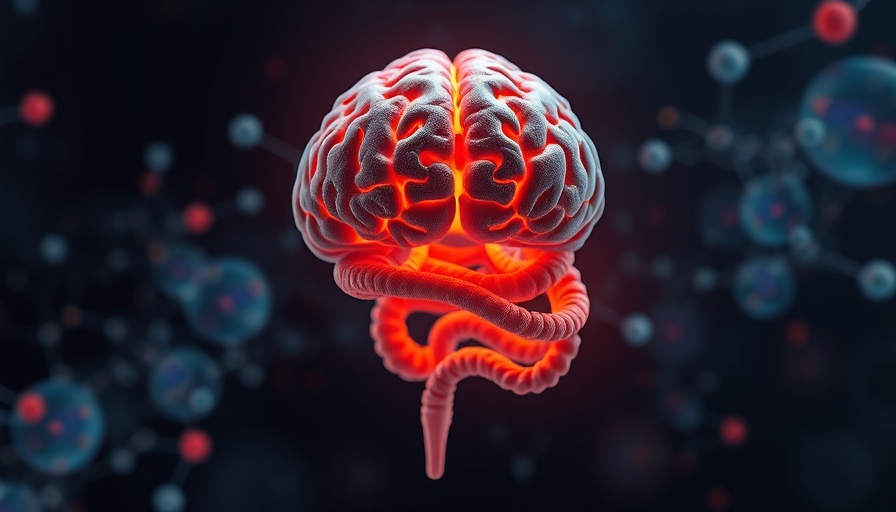
The Hidden Truth About Dissociative Identity Disorder
Dissociative Identity Disorder (DID), once stigmatized and often misunderstood, is a psychological condition characterized by the presence of two or more distinct personality states or anexperience of possession. This condition is frequently rooted deeply in trauma, particularly events suffered in childhood. However, a common misconception is that individuals diagnosed with DID are often the perpetrators of violence. In reality, it is often the trauma they’ve experienced that leads to their psychological distress, not an inherent predisposition to violence.
In 'People with #did aren’t usually the perpetrators, but rather those who have experienced #trauma,' the discussion dives into the complex interplay between trauma and mental health, exploring key insights that sparked deeper analysis on our end.
Understanding the Roots of Trauma
The narrative surrounding mental health, particularly conditions such as DID, often neglects the direct link between traumatic experiences and the mental illness that may manifest subsequently. Childhood traumas can include physical, emotional, and sexual abuse, which can lead to complex post-traumatic stress disorder (PTSD). For many, dissociation acts as a coping mechanism to manage overwhelming stress, enabling them to navigate their painful realities. Understanding that trauma manifests in various ways, including severe dissociative conditions, is crucial for mental health professionals.
The Psychological Landscape of Mental Health Disorders
DID doesn’t appear in isolation; those who suffer from it often experience co-occurring conditions such as anxiety, depression, or mood disorders like bipolar disorder. Addressing these interconnected issues is essential for effective mental health treatment. Mental health professionals are trained to recognize the multifaceted nature of these disorders, utilizing various approaches, such as Cognitive Behavioral Therapy (CBT) and Dialectical Behavior Therapy (DBT), to help clients build emotional regulation skills and resilience.
Dispelling Myths: Perpetrators vs. Survivors
It's imperative for society to redefine its understanding of survivors of trauma. The stereotype that people with DID or similar disorders pose a threat does not reflect the reality that most are more likely to be victims than aggressors. This stigma not only complicates their integration into society but severely impacts their mental health. Addressing these stereotypes through education and awareness campaigns can foster better support systems for those living with such conditions.
Encouraging Trauma-Informed Care
Trauma-Informed Care (TIC) is a model that acknowledges the prevalence of trauma and seeks to understand its impact on individuals’ lives. Mental health treatment should consider the historical context of a person's trauma, advocating for a compassionate approach that fosters trust and empowerment. Mental health professionals must be equipped with the training necessary to provide thorough and empathetic care to individuals with DID and other trauma-related disorders.
The Role of Mental Health Awareness
Promoting mental health awareness is a vital step in reducing stigma surrounding mental illness. Initiatives aimed at educating the public about the realities of DID and other mental health disorders can lead to more compassion and understanding. Open conversations can demystify the struggles many face and encourage those suffering to seek treatment. It’s crucial to recognize that mental illness does not diminish a person’s worth or their capacity to contribute positively to society.
Future Implications for Mental Health Treatment
As our understanding of mental health continues to evolve, it is essential for professionals in the field to stay informed about ongoing research findings related to trauma and its psychological effects. This ensures that treatment modalities remain relevant and effective. The advances in neuroscience and psychological research underscore the need for integrated approaches that address both trauma and mental health disorders holistically.
In summary, mental health professionals have a critical role to play in not only advocating for individuals with DID but also in reshaping societal narratives that perpetuate stigma. By acknowledging the fundamental link between trauma and mental health disorders, and by championing compassionate, informed care, we can promote healing and personal growth.
If you are a mental health professional seeking to deepen your understanding of trauma-informed practices, consider seeking additional training and resources. Join local or online communities of practice focused on mental health awareness to stay updated on the best practices and to share insights with your peers.
 Add Row
Add Row  Add
Add 




Write A Comment